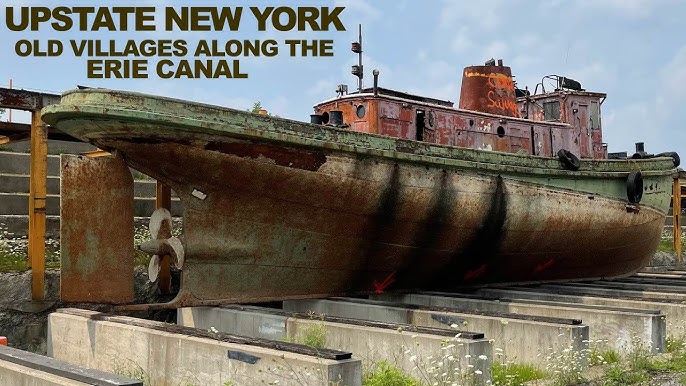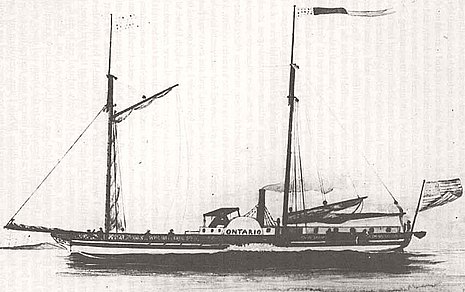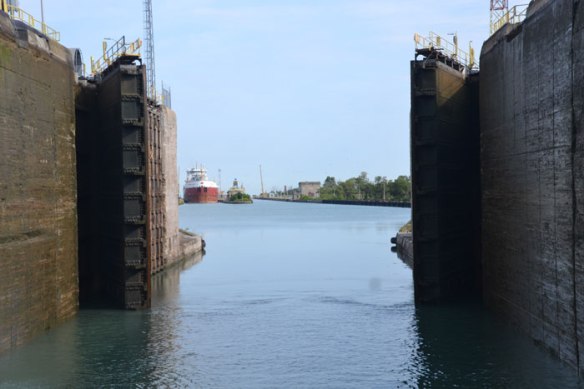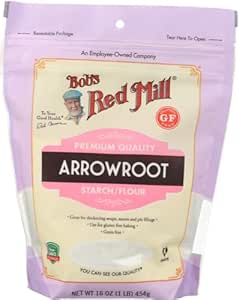eDJ_
Well-known member
Yes, I lived in the Zanesville, Ohio area at one time and dated a girl who came from Coshocton, Ohio. She took me to her hometown which was once a large terminal on the Erie Canal and that part of the town was restored as Roscoe Village Heritage center.
There was a Canal Boat that had been built by "canal historians" there that you could board and be towed along the canal. There are kayakers using the canals today for sports and recreation. Some of these recently built canal boats are used for towing tourist out and back on open stretches of the canal. A lot of fishermen fish the canals too.
Roscoe Village in Coshocton, Ohio
Waverly, Ohio was another large terminal on the canal too. When driving to Columbus (state capital) north on S Rt 23 thru Waverly you are driving right over the old canal channel. The Post Office there has this old WPA era mural painted on one of it's walls. You notice the red brick building with the wooden outdoor stair case on the side of it ? It is still there. (or was the last time I went thru there)

Waverly, Ohio Canal Park
But all across Ohio there are ruins of the Erie and the Miami canal. In New York there are similar. Some segments of these canals have been restored for historic value and tourism.
The lower part of the Ohio Erie Canal was prone to flooding. Farmers and timber businessmen clear cropped a lot of trees and there was nothing to help stop the big floods after the Civil War. So by 1913 the last huge flood thru that area nearly destroyed that end of the canal. Had it not been for this unchecked agricultural practice.....Portsmouth, Ohio may have become as large as Cleveland, Ohio today. The last huge flood was in 1937. Since then the Corp of Engineers has worked to build lakes along side the rivers to serve as catch basins for water run off. They have spillways so that they can release the water they fill up with once the rivers begin to return to their normal levels.
Some ask how canal boats got from the New York Erie Canal at Buffalo, NY to the Ohio Erie Canal at Cleveland, Oh. Well, steam boats (tugs) were built to ply Lake Ontario and Lake Erie so that groups of canal boats could be tied together as floatillas and towed across those stretches of the Great Lakes to get back and forth. With the help of these tugs the canal boats could be towed across those parts of the Great Lakes just a few days. So that within 13 days or so one could travel from Albany, NY to Portsmouth, Oh.

There was a Canal Boat that had been built by "canal historians" there that you could board and be towed along the canal. There are kayakers using the canals today for sports and recreation. Some of these recently built canal boats are used for towing tourist out and back on open stretches of the canal. A lot of fishermen fish the canals too.
Roscoe Village in Coshocton, Ohio
Waverly, Ohio was another large terminal on the canal too. When driving to Columbus (state capital) north on S Rt 23 thru Waverly you are driving right over the old canal channel. The Post Office there has this old WPA era mural painted on one of it's walls. You notice the red brick building with the wooden outdoor stair case on the side of it ? It is still there. (or was the last time I went thru there)

Waverly, Ohio Canal Park
But all across Ohio there are ruins of the Erie and the Miami canal. In New York there are similar. Some segments of these canals have been restored for historic value and tourism.
The lower part of the Ohio Erie Canal was prone to flooding. Farmers and timber businessmen clear cropped a lot of trees and there was nothing to help stop the big floods after the Civil War. So by 1913 the last huge flood thru that area nearly destroyed that end of the canal. Had it not been for this unchecked agricultural practice.....Portsmouth, Ohio may have become as large as Cleveland, Ohio today. The last huge flood was in 1937. Since then the Corp of Engineers has worked to build lakes along side the rivers to serve as catch basins for water run off. They have spillways so that they can release the water they fill up with once the rivers begin to return to their normal levels.
Some ask how canal boats got from the New York Erie Canal at Buffalo, NY to the Ohio Erie Canal at Cleveland, Oh. Well, steam boats (tugs) were built to ply Lake Ontario and Lake Erie so that groups of canal boats could be tied together as floatillas and towed across those stretches of the Great Lakes to get back and forth. With the help of these tugs the canal boats could be towed across those parts of the Great Lakes just a few days. So that within 13 days or so one could travel from Albany, NY to Portsmouth, Oh.







































































